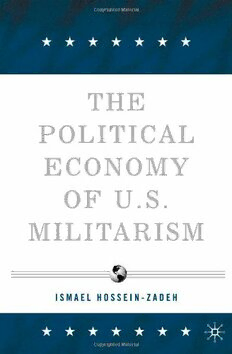
Political Economy of U.S. Militarism PDF
303 Pages·2006·1.093 MB·English
Most books are stored in the elastic cloud where traffic is expensive. For this reason, we have a limit on daily download.
Preview Political Economy of U.S. Militarism
Description:
This wide-ranging, interdisciplinary analysis blends history, economics, and politics to challenge most of the prevailing accounts of the rise of U.S. militarism. While acknowledging the contributory role of some of the most widely-cited culprits (big oil, neoconservative ideology, the Zionist lobby, and President Bush's world outlook), this study explores the bigger, but largely submerged, picture: the political economy of war and militarism. The study is unique not only for its thorough examination of the economics of military spending, but also for its careful analysis of a series of closely related topics (petroleum, geopolitics, imperialism, terrorism, religious fundamentalism, the war in Iraq, and the Palestinian-Israeli conflict) that may appear as digressions but, in fact, help shed more light on the main investigation.
See more
The list of books you might like
Most books are stored in the elastic cloud where traffic is expensive. For this reason, we have a limit on daily download.
